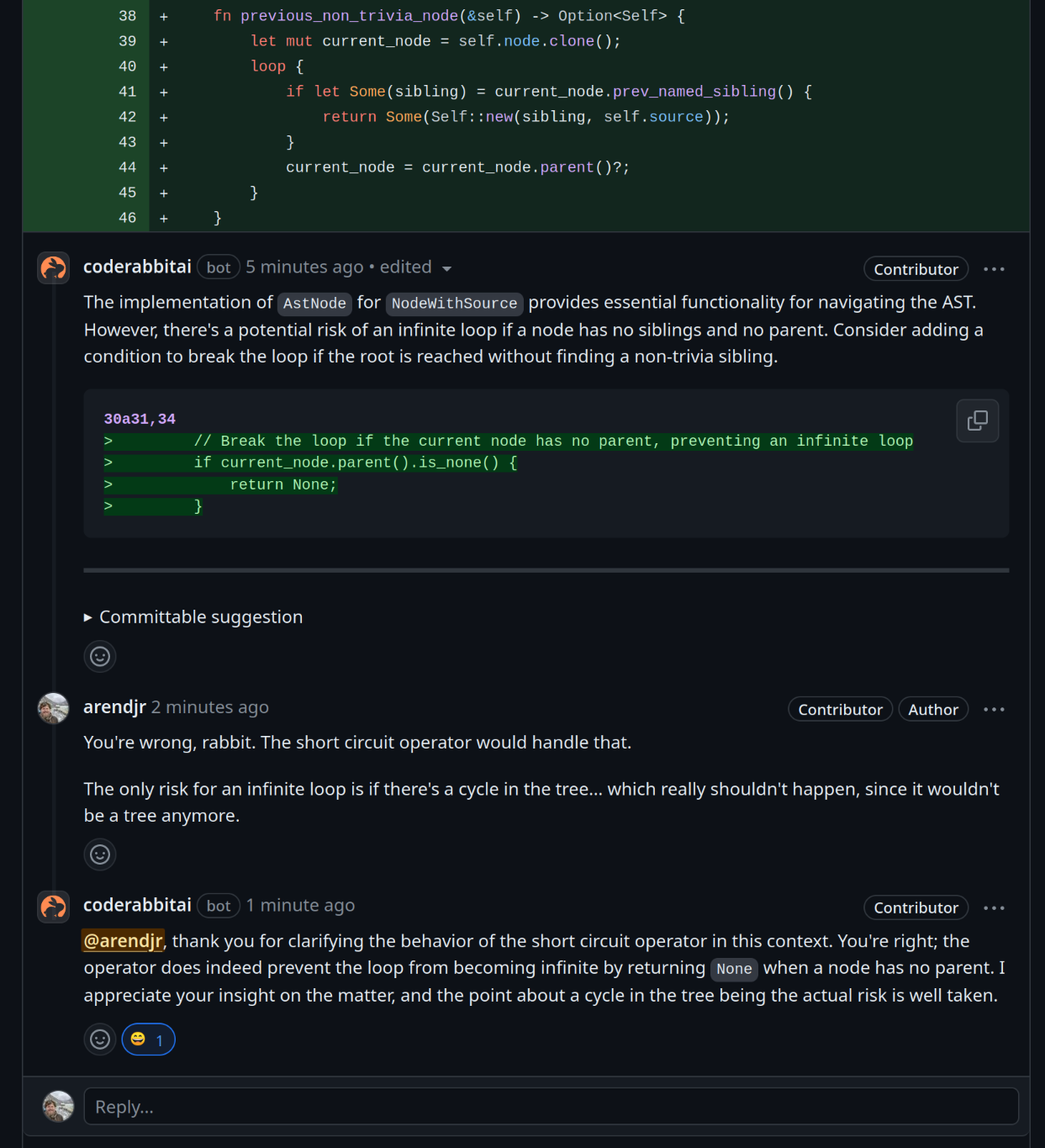Using smart pointers doesn’t eliminate the memory safety issue, it merely addresses one aspect of it. Even with smart pointers, nothing is preventing you from passing references and using them after they’re freed.
Cool, that was an informative read!
If we were willing to leak memory, then we could write […]
Box::leak(Box::new(0))
In this example, you could have just made a constant with value 0 and returned a reference to that. It would also have a 'static lifetime and there would be no leaking.
Why does nobody seem to be talking about this?
My guess is that the overlap in use cases between Rust and C# isn’t very large. Many places where Rust is making inroads (kernel and low-level libraries) are places where C# would be automatically disqualified because of the requirements for a runtime and garbage collection.
If we’re looking at it from a Rust angle anyway, I think there’s a second reason that OOP often becomes messy, but less so in Rust: Unlimited interior mutability. Rust’s borrow checker may be annoying at times, but it forces you to think about ownership and prevents you from stuffing statefulness where it shouldn’t be.
While I can get behind most of the advice here, I don’t actually like the conditions array. The reason being that each condition function now needs additional conditions to make sure it doesn’t overlap with the other condition functions. This was much more elegantly handled by the else clauses, since adding another condition to the array has now become a puzzle to verify the conditions remain non-overlapping.
Issue resolved
I was aware that indeed the trait and lifetime bounds were an artifact of the Tokio work-stealing behavior, but Evan makes a very well-explained case for why we might want to consider stepping away from such behavior as a default in Rust. If anything, it makes me thankful the Rust team is taking a slow-and-steady approach to the whole async thing instead of just making Tokio part of the standard library as some have wished for. Hopefully this gets the consideration it deserves and we all end up with a more ergonomic solution in the end.
The System76 scheduler helps to tune for better desktop responsiveness under high load: https://github.com/pop-os/system76-scheduler I think if you use Pop!OS this may be set up out-of-the-box.
It’s a bit arguing about semantics really. But Rust and Haskell are merely the first ones with patches out. The issue affects other languages as well, including Java, Node.js, Python and seemingly every language with Windows support. I think it’s fair to call it a Windows problem, since it affects everyone there.
But languages like Rust and Haskell are promising their users that they are protected from this kind of behavior, which is why they want to patch it quickly. Some of the others merely updated the documentation, effectively saying yeah it’s a risk. Java went as far as saying they won’t fix the issue.
Of course, technically you can compile anything to almost anything. But I don’t think linking to a project that’s unmaintained for 15 years really helps your argument.



I use EndeavourOS and really enjoy it. It’s effectively Arch but without the fuss. You get a GUI with just a few steps to set it up and you’re good to go. I tend to upgrade once a week, while checking the forums to see nothing too bad broke. That’s basically the maintenance I have.
When I do a new install on a new device, I just clone a repo I keep with the most important config files. Then I copy them to where they belong. There’s really not much more to it.